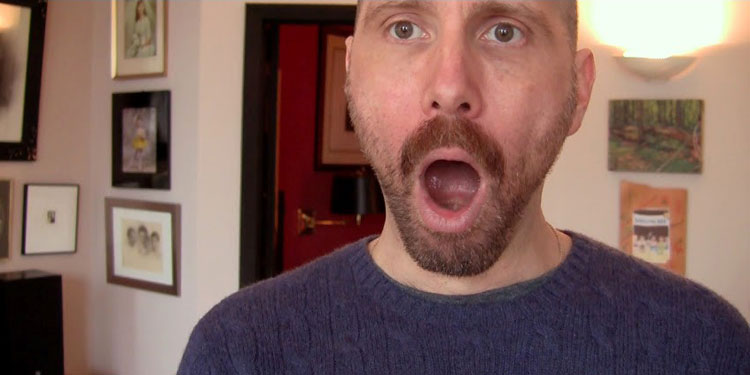
Director: David Thorpe
Running Time: 77 mins
Certificate: NR
Release Date: July 13th 2015 (Outfest), July 17th 2015 (US)
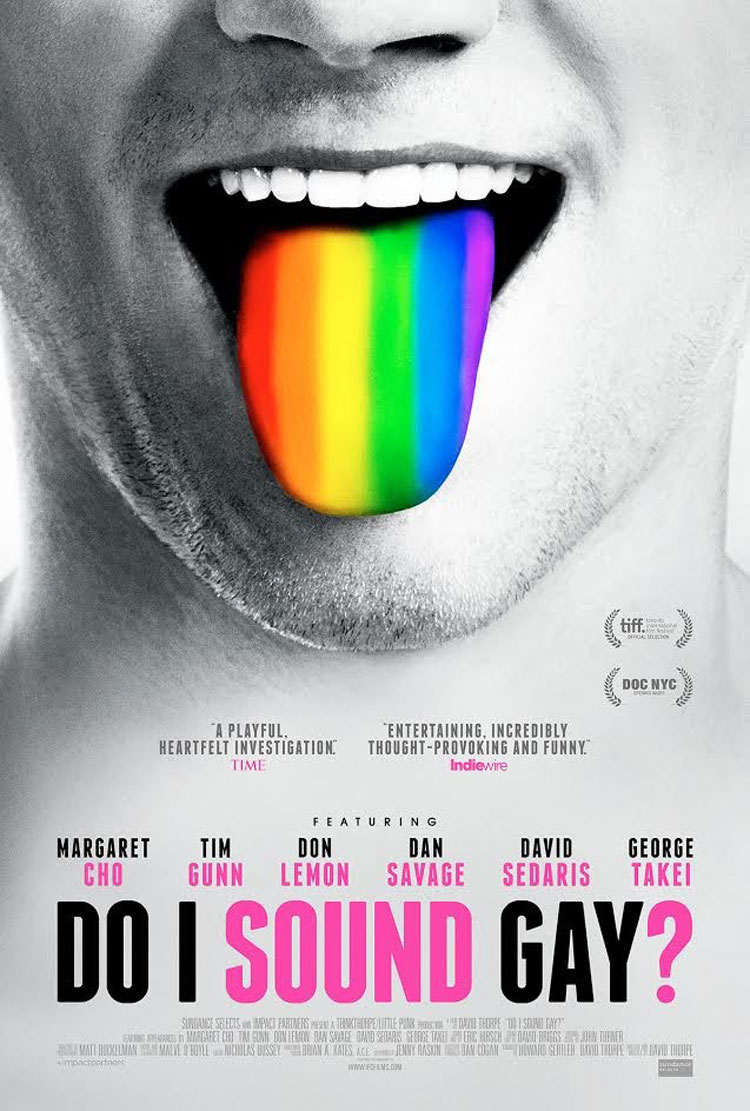
I’ve always been slightly fascinated by the idea of ‘sounding gay’ and where it comes from. Is it something innate in certain people, an affectation, or a way of bonding (perhaps a hangover from the feeling gay men had of their other-ness when they were more rejected by society and internalised the idea of homosexuality amongst men making them innately feminine)?
My interest stems from two experiences, the first when I was only about seven or eight and a young boy started at school who we all thought was like a girl – and for all I know, perhaps inside he was. He only ever wanted to play My Little Pony, begged his mother to pierce his ears (so he could wear faux-diamond studs) and spoke with a feminine quality. At the time we didn’t have the words to express what made him ‘different’, but looking back there is no doubt that even if he was only about five-years-old, he sounded gay and was rather camp.
The second experience happened when I started university and went to the first couple of meetings of that year’s LGBT Society. I met several other gay ‘freshers’ who all seemed nice and weren’t noticeably gay, but I never really got on with the group, who often seemed angry, arch and oddly intolerant of difference. As a result I left the group, but met many of the new intake towards the end of the year, and couldn’t help but notice that, like the LGBT society veterans, their voices had changed and they now ‘sounded gay’. It seemed at the time like a major affectation, a way of bonding with that group and its slightly militantly gay outlook. To see the change in those young men intrigued me, and also seemed to contradict what I’d thought about gay voices been innate due to the young boy at school.
I was therefore very keen to watch ‘Do I Sound Gay?’, which is one of the few films that actually takes on what has increasingly become the big gay elephant in room. There has been a fair amount of talk about those on apps like Grindr who say they only want ‘straight acting’ people. However, there’s rarely been proper engagement with the issues, largely because they are deeper and far more complex than they may first appear.
David Thorpe tackles it head-on in this documentary, with the spine of the film being his own quest to sound less gay, as he isn’t keen on that quality in his voice. Along the way he looks at the history of it, from the ‘sissies’ of early film and TV, through the camp celebrities of the 60s and 70s (Liberace, Paul Lynde, etc.), through to the rejection of ‘camp’ in the 1980s, when for many it became a symbol of how straight people wanted to belittle and define us, as it was always used as something to laugh at and was the only visible sign of homosexuality around.
However, ‘sounding gay’ never went away, and in more recent years there’s been a backlash against the rejection of it, with many suggesting it should be embraced or at least not treated as if those who do sound gay are somehow lesser. There are a lot of issues surrounding that which are far more complex that they first appear, which aren’t just about the history of the ‘gay voice’, but also delve into the debate of nature vs. nurture, gender identity and misogyny (e.g. is a rejection of ‘sounding gay’ to do with men not wanting to associate with something seen as feminine?). And allied to all that is whether a ‘gay voice’ will affect how others view you and potentially narrow your potential in areas such as work, and that even if it does, whether gay people should capitulate to that. Thorpe attempts to look at many of these issues in an open and expansive way, but due to the fact there is far more to sounding gay than there first appears, the film doesn’t always dig that deep.
That’s less of a problem than it might be, as by casting a wide net it allows the movie to ask a lot of questions that the viewer can then ponder. Indeed, it’s interesting how few conclusions Thorpe comes to, instead seemingly accepting that this is a subject where there are a lot of conflicting opinions and where the ‘answers’ various people have may be as much to do with how they wish things were because it fits with their worldview of sexuality, as how things actually are.
Even with Thorpe himself, he finds it difficult to say whether sounding gay is something he was born with or whether it’s something that developed later. There’s plenty of evidence for the latter, with many of his school friends only noticing it after he went to university and made gay friends, but there are also suggestions it was there – or least the beginnings of it – from early childhood. Indeed, whether true or not, one of the more interesting suggestions is whether many youngsters sent to speech therapy for help with a lisp, actually don’t have a lisp (at least in technical terms) but are really pre-teen gay kids who are essentially being taught how to pass as straight due to the supposed feminine qualities of their voice.
Ideas like that are intriguing (although unprovable, as how would they know if all the kids with a sibilant ‘s’ actually grew up gay?), as they demonstrate how sounding gay touches on many of the key questions about sexuality. Thorpe presents the different sides and then leaves it up to the viewer to decide how they fit together and ultimately what they think of the ‘gay voice’, with the movie’s only real conclusion being that no matter what we think it means, perhaps we should all be a little more open, understanding and thoughtful about it, as it’s not a simple as it might seem.
It’s interesting how with virtually everything Thorpe looks at, whether personal to him or more generally, there are two sides, both of which seem fairly plausible. Some may not like Do I Sound Gay’s lack of conclusions, especially if it doesn’t support their own views on the world, but it’s actually a very effective way to look at something where the debate it very much live and as yet there is no real settled viewpoint.
Thanks to a good range of interviewees Thorpe manages to get a broad variety of viewpoints and illuminate how this is not just about individuals who ‘sound a bit gay’, but touches of all sorts of issues that surround sexuality, and that the battle between ‘straight-acting’ and ‘camp’ is merely the tip of something that’s far more complex. Perhaps most importantly it reveals that there are a lot of questions about sexuality that we may like to ignore but which are very much alive and need to be addressed more thoroughly.
Overall Verdict: Sounding gay is a far more interesting and intriguing subject than you might think. Whether you like ‘camp’ voices or not, this documentary may make you realise the issues surrounding it are actually fairly complex, taking in both the history of homosexuality and some of the key questions about being gay which are yet to be settled.
Reviewer: Tim Isaac

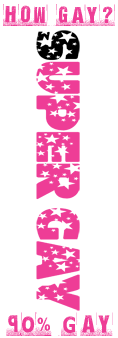

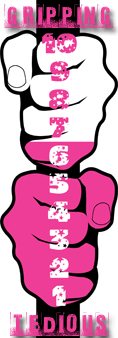
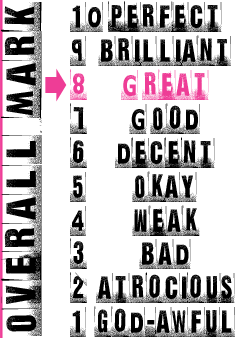
Leave a Reply (if comment does not appear immediately, it may have been held for moderation)